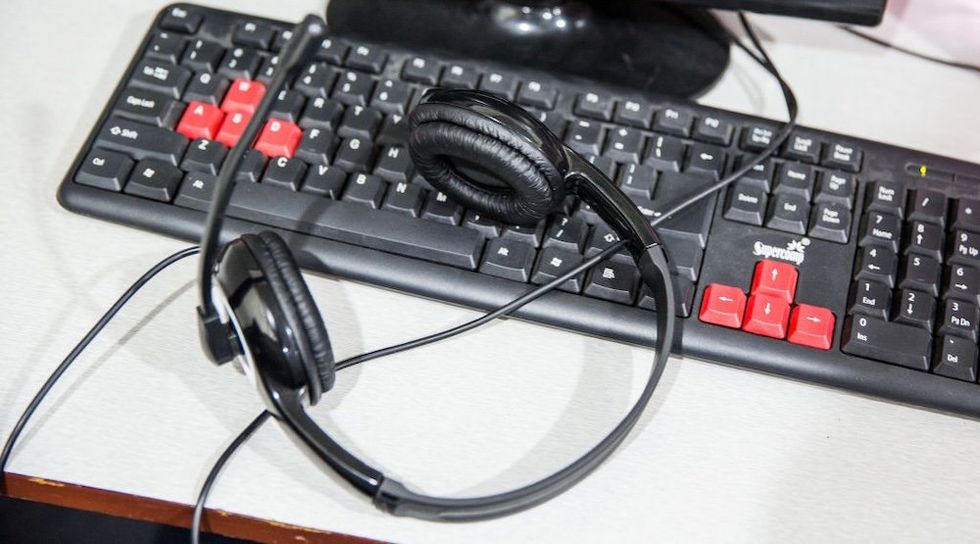
Taylor Weidman/Bloomberg via Getty Images

Amazon, AT&T, Walmart — they all use foreign call centers. Tariffs could make them hire Americans again instead of chasing cheap labor abroad.
Even skeptics now hail President Trump’s tariffs on foreign goods as a major win for the American economy. Goods and services form the backbone of economic activity and trade. As groundbreaking as Trump’s tariff policies have been, the next step to secure a new American golden age is clear: Target the theft of American service-sector jobs.
Trump’s America First doctrine reshaped the U.S. political and economic landscape. It put the forgotten worker back at the center of policy, revived domestic manufacturing, and challenged the long-entrenched dogma of globalist free trade. But one glaring weakness remains — the mass offshoring of service-sector jobs, especially in call centers and customer support, to low-wage countries.
Mr. President, make the service sector American again.
Trump can fix this. The most effective tool is a targeted tariff on companies that ship service jobs overseas.
Most Americans know about the loss of manufacturing jobs. Fewer realize the scale of the service-industry exodus.
Pick up the phone to call customer service and the odds are high you’ll hear a voice thousands of miles from U.S. soil. Companies offshore call centers, IT help desks, software engineering, and back-office support to places like India and the Philippines, where workers earn a fraction of U.S. wages.
These jobs once anchored communities across the Midwest and South, providing stable, middle-class incomes without requiring a college degree. Today, millions of American workers — especially women, rural residents, and non-college-educated individuals — have been displaced. Many now settle for lower-paying, unstable, often part-time work.
At the same time, offshoring heightens data privacy risks, and foreign call centers operate with little or no U.S. oversight.
The practice isn’t limited to a few bad actors. Many Fortune 500 companies — Amazon, AT&T, Bank of America, Capital One, Citibank, Google, JPMorgan Chase, Walmart, Wells Fargo, Target, and Verizon — all run offshore call centers in India and the Philippines. Many smaller firms do the same. For every call center in the United States, at least 10 operate overseas.
The numbers are staggering. The Philippines leads with an estimated 1.3 to 1.5 million call center workers. India follows closely with 1.1 to 1.3 million. Mexico, another popular outsourcing hub, employs more than 700,000 in the field.
RELATED: Main Street’s silent plea: Exempt us from the next tariffs

Trump has already proven tariffs can work, using them to force China to the negotiating table and to secure America First trade deals with the U.K., EU, and others. A service-import tariff would build on those wins.
Such a tariff could be assessed on every foreign-based call center employee serving U.S. customers. Companies that move jobs offshore after taking taxpayer bailouts or contracts could face additional tax penalties.
This isn’t protectionism — it’s patriotism. American tax dollars shouldn’t subsidize the destruction of American jobs.
Tariffs on offshored service-sector jobs could bring millions of positions back to U.S. soil. Trump has already targeted foreign goods. Now, it’s time for the second shoe to drop: Target foreign services.
Mr. President, make the service sector American again.
Julio Gonzalez